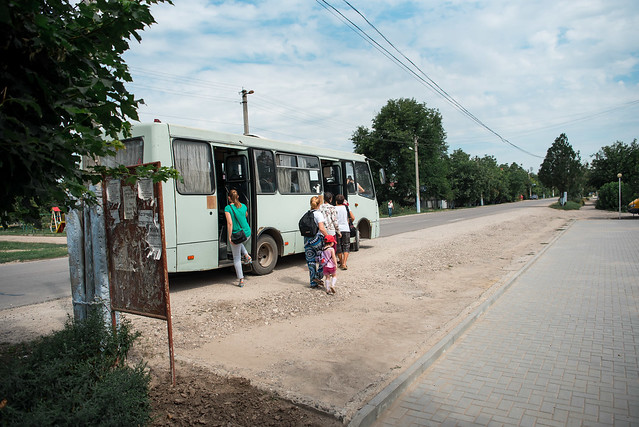Support services for survivors of gender-based violence (GBV) will be created in the Gagauzia region of Moldova, as part of a global programme financed by the Republic of Korea and implemented by the UNDP. Women from five Gagauzia communities, including Comrat town, will be able to access support from psychologists, social workers, and legal advisors. Also, they will benefit from help and advice to find work or start their own business.
The pilot programme will be launched in Chirsova, a village in Gagauzia, which has 6,298 inhabitants, of which 3,235 are women. Besides survivors of GBV, 20,000 women, including from neighboring localities, could benefit from the counseling services.
“Working in and with such a diverse region will allow us to learn what works and is indeed efficient so we can successfully replicate the program in other parts of Moldova. And we are ultimately looking at prevention so that such violence never happens again,” said Valeria Ieseanu, Assistant Resident Representative/Head of Programme at UNDP Moldova.
A team of support specialists for survivors of GBV will be established following a decision by the local council.
“Our community is crying out for support services for survivors of GBV,” said the Mayor of Chirsova, Serghei Sapunji. “Police and social services are put under pressure as there is not enough knowledge or the infrastructure to support a GBV survivor or work with the aggressor to prevent this from happening again”.
"I heard on TV some time ago that there is a law that defends women against violent husbands and that there are places of support where they can go, but we do not have such places to support us. I'm glad that at last something will be done in our locality for the women who are beaten, but also maybe for the husbands who are beating them, so they will not be violent anymore," said Kirekia, resident of Chirsova.
With UNDP’s support, community members will develop a local action plan for preventing and combatting GBV. This document will enable local authorities to create services to break the cycle of violence and prevent it from happening again, so as allocate and mobilize resources.
The “Addressing violence against women in the Republic of Moldova: exploring and learning from local solutions” project will be implemented during 2018-2010, with a budget of approximately 400,000 USD.
This pilot programme in Moldova marks the launch of UNDP’s global project entitled “Ending Gender-based Violence and Achieving the Sustainable Development Goals”, which aims to take violence prevention to scale by bringing new partners, strategies and sources of financing to the table. The project will be implemented in the following seven countries: Bhutan, Lebanon, Indonesia, Iraq, Moldova, Peru and Uganda. UNDP and the Republic of Korea launched this global initiative to overcome the imbalance between the size of the problem and the resources dedicated to its solution.
The Republic of Moldova has developed a series of policies to address GBV, such as the National Strategy on Ensuring Equality between Women and Men (2017-2021), that calls for investments in social, psychological, legal, educational and economic services for women and girls, and a National Strategy on Prevention and Combatting of Violence Against Women and Domestic Violence (2018-2023). It signed the Istanbul Convention in February 2017.
In Moldova, according to the National Bureau of Statistics’ 2011 survey on violence against women, 7 out of 10 rural women, and 6 out of 10 women aged 25-44 have experienced at least one form of violence from their partner in their lifetime. More than half of all women in Moldova have experienced psychological abuse. Two out of 5 women in the country have been physically abused and one in five adult women (35-59 years) have experienced sexual harassment (every second victim was multiply abused). For every 10 women who experienced violence from someone other than their partner, 5 were abused by their parents, and 3 by their siblings.

 Locations
Locations





